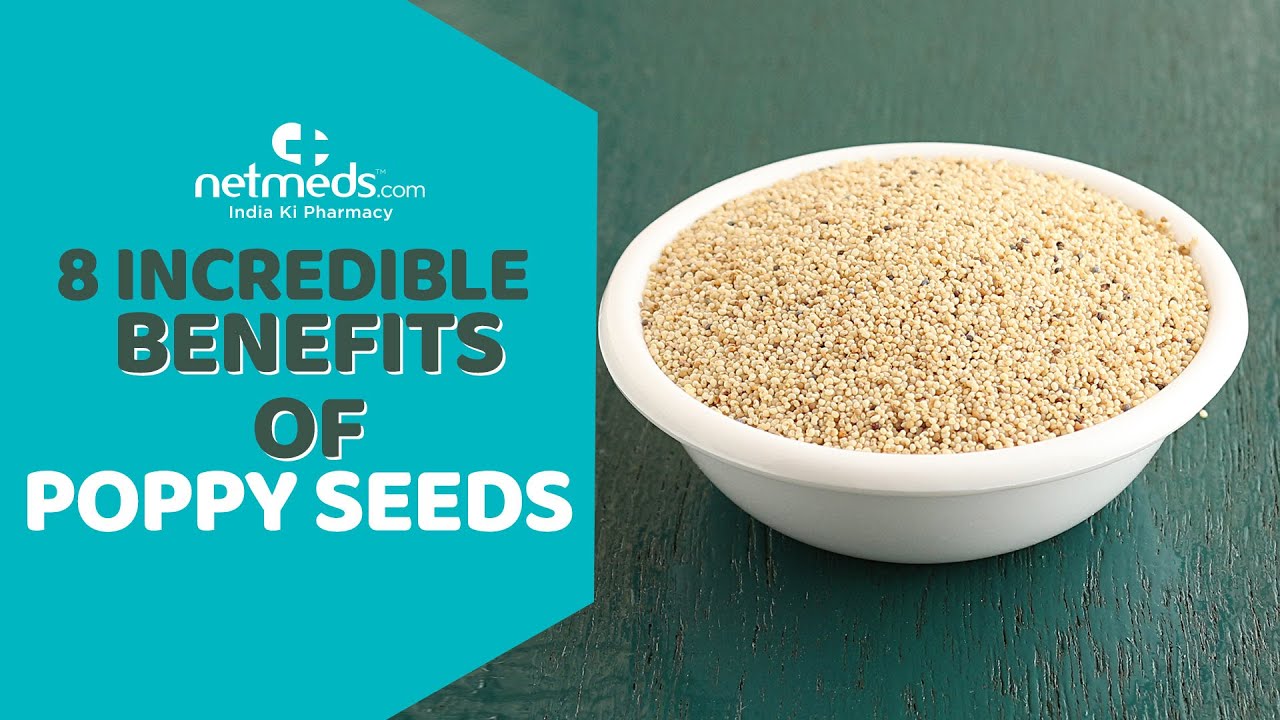The Benefits of Poppy Seeds
Welcome to our comprehensive guide on the benefits of poppy seeds. In this article, we will delve into the various advantages of incorporating poppy seeds into your diet. From their rich nutrient profile to their potential health benefits, poppy seeds have much to offer. Let’s explore!
Poppy Seeds: A Nutritional Powerhouse
Poppy seeds are tiny, oil-rich seeds derived from the opium poppy plant (Papaver somniferum). Despite their small size, these seeds pack a punch when it comes to nutrition. They are an excellent source of essential minerals such as calcium, magnesium, iron, and phosphorus. Poppy seeds also contain a good amount of dietary fiber and plant-based protein.
Rich in Antioxidants
One notable benefit of poppy seeds is their high antioxidant content. Antioxidants play a crucial role in neutralizing harmful free radicals in the body, thereby protecting against oxidative stress and reducing the risk of chronic diseases like heart disease and certain types of cancer.
Source of Healthy Fats
Poppy seeds are a great source of healthy fats, including omega-3 and omega-6 fatty acids. These essential fats are known for their role in promoting heart health, reducing inflammation, and supporting brain function. Incorporating poppy seeds into your diet can be an excellent way to boost your intake of these beneficial fats.
Health Benefits of Poppy Seeds
Improved Digestion
The dietary fiber present in poppy seeds can help promote healthy digestion. Fiber adds bulk to the stool, preventing constipation and promoting regular bowel movements. Additionally, it aids in maintaining a healthy gut microbiome, which is essential for overall digestive health.
Enhanced Brain Function
The omega-3 fatty acids found in poppy seeds are crucial for brain health. These fats contribute to the structure and function of brain cells, supporting cognitive function, memory, and overall mental well-being.
Support for Bone Health
Poppy seeds contain essential minerals like calcium, phosphorus, and magnesium, which are vital for maintaining strong and healthy bones. Regular consumption of poppy seeds may contribute to preventing conditions like osteoporosis and promoting bone density.
Regulated Blood Pressure
Poppy seeds are a good source of minerals such as potassium and magnesium, which play a role in maintaining healthy blood pressure levels. Including poppy seeds in your diet can be a natural way to support cardiovascular health and manage blood pressure.
Incorporating Poppy Seeds into Your Diet
Now that we’ve explored the numerous benefits of poppy seeds, you may be wondering how to incorporate them into your diet. Here are some creative ideas:
Sprinkle on Salads
Add a nutty and crunchy texture to your salads by sprinkling a handful of poppy seeds on top. They pair well with a variety of vegetables and dressings, enhancing both the flavor and nutritional value of your greens.
Blend into Smoothies
Boost the nutritional content of your smoothies by adding a tablespoon of poppy seeds. They blend well with fruits and leafy greens, adding a subtle nutty flavor and a dose of essential nutrients.
Bake into Goods
Poppy seeds are a popular ingredient in baked goods, such as muffins, bread, and cakes. Their unique texture and flavor make them a delightful addition to various recipes. Explore different baking recipes that incorporate poppy seeds and enjoy the benefits they bring.
Use as a Coating
Coat fish, chicken, or tofu with a mixture of poppy seeds and breadcrumbs for a delicious and nutritious crust. This adds a delightful crunch while providing the benefits of poppy seeds along with your protein source.

In conclusion, poppy seeds offer a wide range of benefits, from their nutritional profile to potential health advantages. Incorporating these tiny yet powerful seeds into your diet can support your overall well-being, including improved digestion, enhanced brain function, and stronger bones. Remember to explore different ways to enjoy poppy seeds, such as sprinkling them on salads, blending them into smoothies, baking them into goods, or using them as a coating. Enjoy the benefits and deliciousness that poppy seeds bring to your meals!
Frequently Asked Questions
1. Are poppy seeds good for your health?
Yes, poppy seeds are highly nutritious and offer various health benefits.
2. What nutrients are present in poppy seeds?
Poppy seeds are a good source of dietary fiber, protein, healthy fats, vitamins, and minerals such as calcium, iron, and magnesium.
3. Can poppy seeds help with digestion?
Yes, the high fiber content in poppy seeds promotes healthy digestion and prevents constipation.
4. Do poppy seeds have any anti-inflammatory properties?
Yes, poppy seeds contain compounds that possess anti-inflammatory properties, which can help reduce inflammation in the body.
5. Can poppy seeds improve brain health?
Yes, poppy seeds are rich in essential minerals and vitamins that support brain health and cognitive function.
6. Are poppy seeds beneficial for heart health?
Yes, the presence of healthy fats and antioxidants in poppy seeds can help lower cholesterol levels and reduce the risk of heart disease.
7. Can poppy seeds aid in weight loss?
Poppy seeds are low in calories and high in fiber, which can help you feel fuller for longer and support weight loss efforts.
8. Are poppy seeds safe to consume during pregnancy?
While poppy seeds are generally safe to consume during pregnancy, it’s always best to consult with a healthcare professional for personalized advice.
9. Can poppy seeds cause allergies?
Some individuals may have an allergic reaction to poppy seeds. It’s important to be cautious if you have a known seed or nut allergy.
10. How can I incorporate poppy seeds into my diet?
Poppy seeds can be sprinkled on top of salads, added to baked goods, used as a coating for meats, or incorporated into dressings and sauces.




